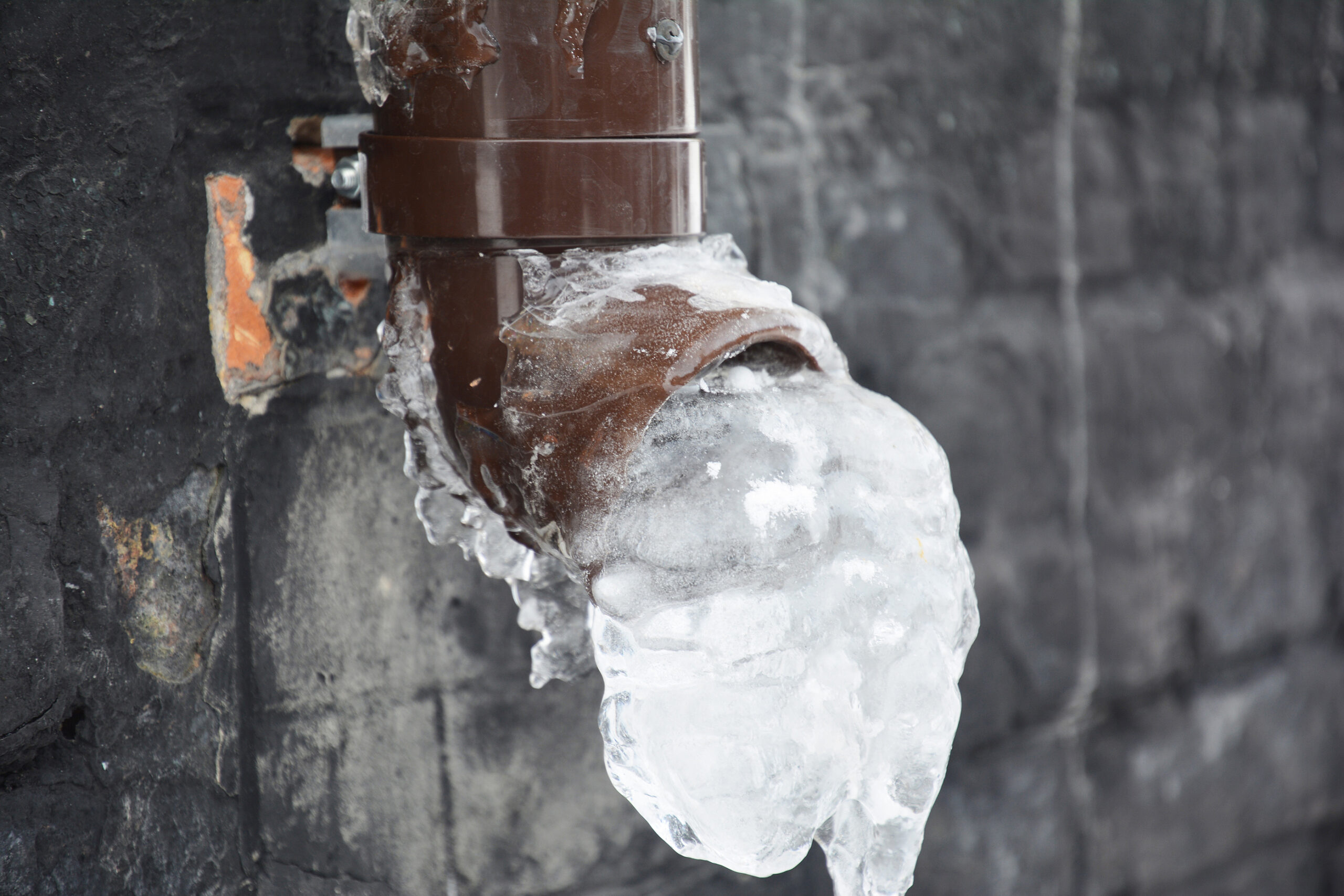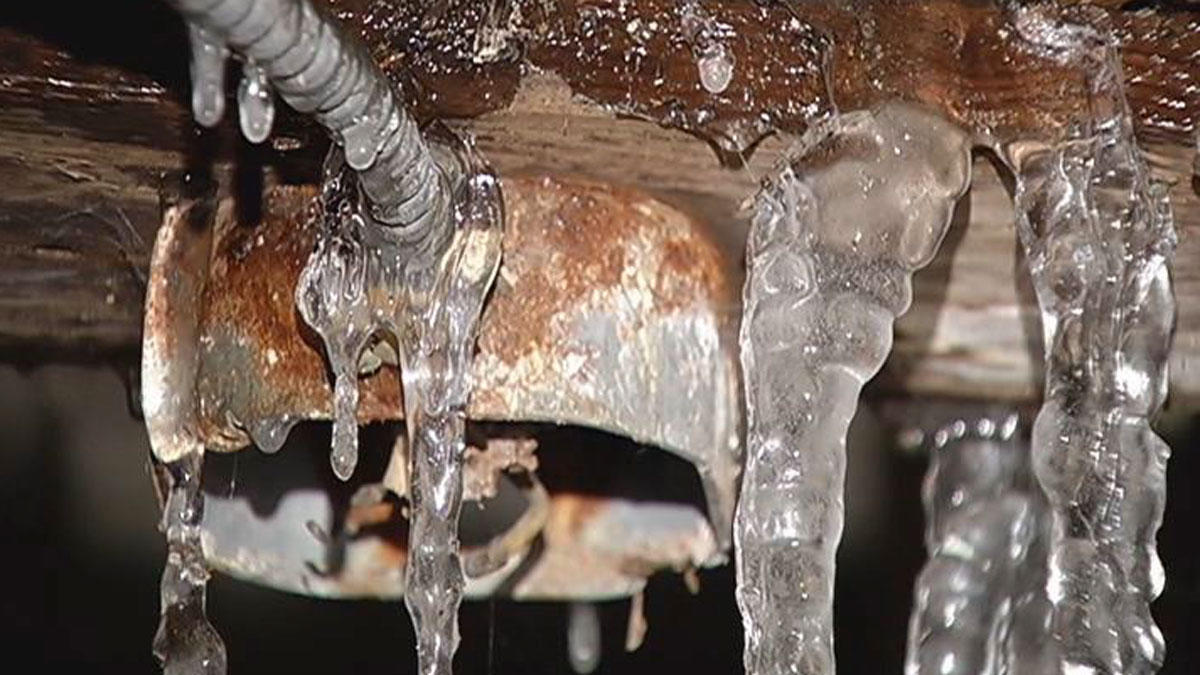Preventing Your Pipes from Freezing: Best Methods
Preventing Your Pipes from Freezing: Best Methods
Blog Article
We have encountered this article involving How To Avoid Freezing Pipes directly below on the net and concluded it made perfect sense to share it with you on this site.

Cold weather can damage your plumbing, especially by freezing pipes. Right here's exactly how to prevent it from happening and what to do if it does.
Introduction
As temperatures decline, the threat of frozen pipes increases, possibly leading to pricey repairs and water damage. Comprehending exactly how to avoid frozen pipelines is crucial for homeowners in cold environments.
Prevention Tips
Protecting at risk pipelines
Cover pipes in insulation sleeves or utilize warm tape to safeguard them from freezing temperature levels. Concentrate on pipes in unheated or exterior areas of the home.
Heating strategies
Maintain interior spaces appropriately warmed, especially areas with pipes. Open up cabinet doors to allow warm air to distribute around pipes under sinks.
Exactly how to recognize icy pipelines
Look for reduced water flow from taps, unusual odors or sounds from pipelines, and noticeable frost on revealed pipes.
Long-Term Solutions
Structural adjustments
Think about rerouting pipes away from outside walls or unheated locations. Include additional insulation to attics, cellars, and crawl spaces.
Updating insulation
Buy top quality insulation for pipes, attic rooms, and wall surfaces. Correct insulation helps preserve consistent temperature levels and minimizes the danger of frozen pipes.
Safeguarding Outdoor Pipes
Yard hose pipes and outdoor taps
Separate and drain pipes garden pipes prior to winter season. Mount frost-proof spigots or cover outdoor faucets with insulated caps.
Recognizing Icy Pipes
What causes pipelines to ice up?
Pipelines freeze when revealed to temperature levels listed below 32 ° F (0 ° C) for prolonged periods. As water inside the pipelines freezes, it increases, taxing the pipeline wall surfaces and possibly causing them to break.
Threats and problems
Icy pipes can result in water disruptions, residential or commercial property damages, and costly repair work. Ruptured pipes can flooding homes and trigger extensive architectural damage.
Signs of Frozen Piping
Determining icy pipes early can stop them from breaking.
What to Do If Your Pipelines Freeze
Immediate activities to take
If you suspect frozen pipelines, maintain taps open to alleviate stress as the ice melts. Use a hairdryer or towels soaked in warm water to thaw pipes slowly.
Final thought
Protecting against icy pipes requires positive steps and quick reactions. By comprehending the causes, indications, and preventive measures, home owners can safeguard their pipes throughout winter.
6 Proven Ways to Prevent Frozen Pipes and Protect Your Home
Disconnect and Drain Garden Hoses
Before winter arrives, start by disconnecting your garden hoses and draining any remaining water. Close the shut-off valves that supply outdoor hose bibs and leave the outdoor faucet open to allow any residual water to drain. For extra protection, consider using faucet covers throughout the colder months. It’s also important to drain water from any sprinkler supply lines following the manufacturer’s directions.
Insulate Exposed Pipes
Insulating your pipes is an effective way to prevent freezing. Pipe insulation is readily available at home improvement stores and is relatively inexpensive. Pay close attention to pipes in unheated areas such as the attic, basement, crawl spaces, or garage. Apply foam insulation generously to create a buffer against the cold. You can also wrap your pipes in heat tape or thermostat-controlled heat cables for added warmth.
Seal Air Leaks
Inspect your home for any cracks or openings that could let in cold air. Seal any holes around the piping in interior or exterior walls, as well as the sill plates where your home rests on its foundation. Additionally, make sure to keep your garage door closed unless you’re entering or exiting. Leaving it open creates a significant air leak that can lead to frozen pipes.
Allow Warm Air Circulation
During cold snaps, it’s essential to allow warm air to circulate evenly throughout your home. Leave interior doors ajar to promote better airflow. Open kitchen and bathroom cabinets to help distribute heat consistently around the rooms. If you have small children or pets, be sure to remove any household chemicals or potentially harmful cleaners from open cabinets for safety.
Let Faucets Drip
A small trickle of water can make a big difference in preventing ice formation inside your pipes. When temperatures drop significantly, start a drip of water from all faucets served by exposed pipes. This continuous flow helps prevent the water from freezing. Additionally, running a few faucets slightly can relieve pressure inside the pipes, reducing the chances of a rupture if the water inside does freeze.
https://choateshvac.com/6-proven-ways-to-prevent-frozen-pipes-and-protect-your-home/

I stumbled upon that review on Helpful Tips to Prevent Frozen Pipes this Winter when scouting around the internet. If you enjoyed our post if you please make sure you remember to pass it around. Many thanks for being here. Return soon.
Book-Now Report this page